A trip to Cuba is a trip back in time. We visit one of the last bastions of communism and a society whose three generations have been submitted to Fidel Castro’s ideology. In these conditions, responsible tourism in Cuba is something of special importance.
Contents
They all want to go to Cuba “before it changes.” This has serious consequences. Many people in the world have the feeling that if they do not visit Cuba now, in a few years they will find the country in a completely different state. Everybody wants to look at this modern iron curtain. Of course, there are many truths in it, but it doesn’t mean that we should wish that Cubans support this unique museum for the world and its discomfort for as long as possible.
Bespoke communism slow down its oppression in Cuba, allowing the importation of technology and private companies, more and more people visit Cuba and leave money there. Cuba’s self-sufficiency, rejection of capitalism and the social state have led to the creation of a practically classless society, with unparalleled health services and free education for all.
Years of isolation and economic embargo have created a country of waste pickers. Cubans love to repair and are pride themselves on being the best in the world. Here we can find even 70-year-old cars, proudly travelling through torn streets, clothes and shoes that are repaired until they really couldn’t live longer; there are oxen instead of tractors to plough the field, and classic dominoes, at the table with friends; It still prevail more than computer games and iPods.
An island like a prison
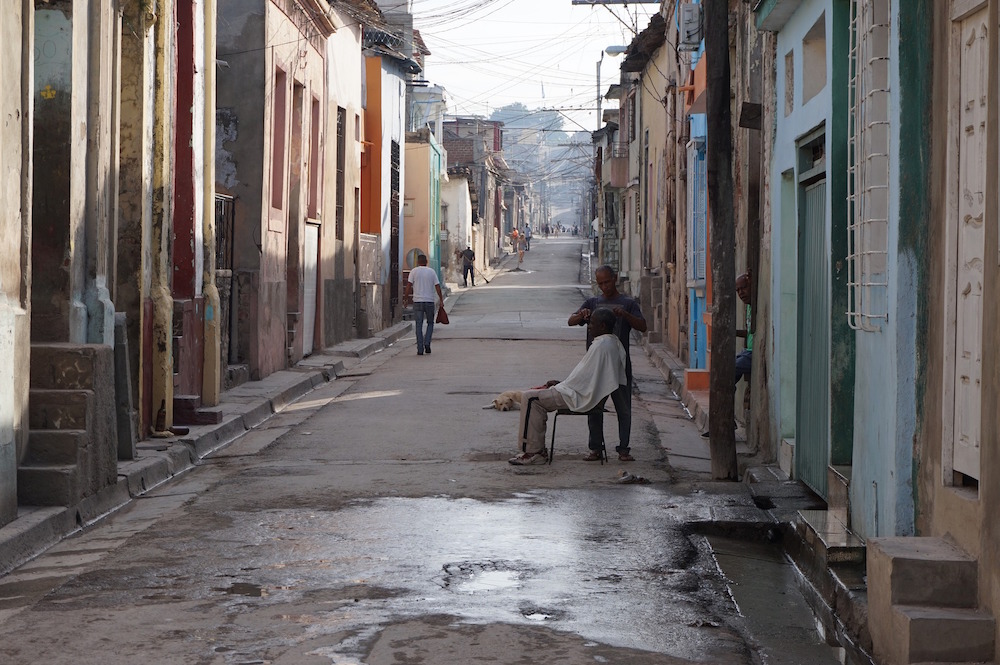
However, it is easy to idealize this social system, which is facilitated by the friendly and smiling inhabitants of Cuba. Communism, nevertheless, does not reward entrepreneurship, and practically everyone is employed for modest state salaries, subsidized by pathetic state rations. Those who get their money, even if it is a “tourist dollar”, will not buy too much, or at least not so easily. Empty stores are hard to miss. Cubans can not just leave the country. Obtaining a passport and a visa for the country where they want to go is not that easy. So we have a country that is beautiful, for many, it seems like a forgotten utopia, but for the citizens, there is also a prison on the island.
Of course, underground capitalism grows in that, corruption grows and inequalities grow, but the current system is still maintained.
It is not so difficult to understand that the changes that creepy capitalism can bring, will be greeted with joy by many Cubans. Although Cuba it is a nation extremely proud of its history, self-sufficiency and independence. Furthermore, many visitors, when they see a reality based on Cuban food books (the so-called ration card), also “accept” and receive it. Many, however, wonder how dealing with the rules of capitalism could be for the lazy Cubans…
History is the key to understand
Understanding the Cuban reality and knowing its history is one of the most important aspects of a responsible trip to the Island. Finances are another important matter. Cuba, for such a poor country and the conditions it offers, is extremely expensive; especially, for people travelling from Poland who changes their currency twice.
A sudden boom in tourism, which has doubled the number of visitors in a decade, surprised Cuba, its residents and the government. Although everyone repeats that the development of private businesses and the stimulation of the economy are very necessary, the Cuban government and the tourism industry must act quickly to avoid Cuba succumb to the trampling and negative impact of tourism on society and the environment. This phenomenon in the world is described as “over-tourism.”
Over Tourism in Cuba
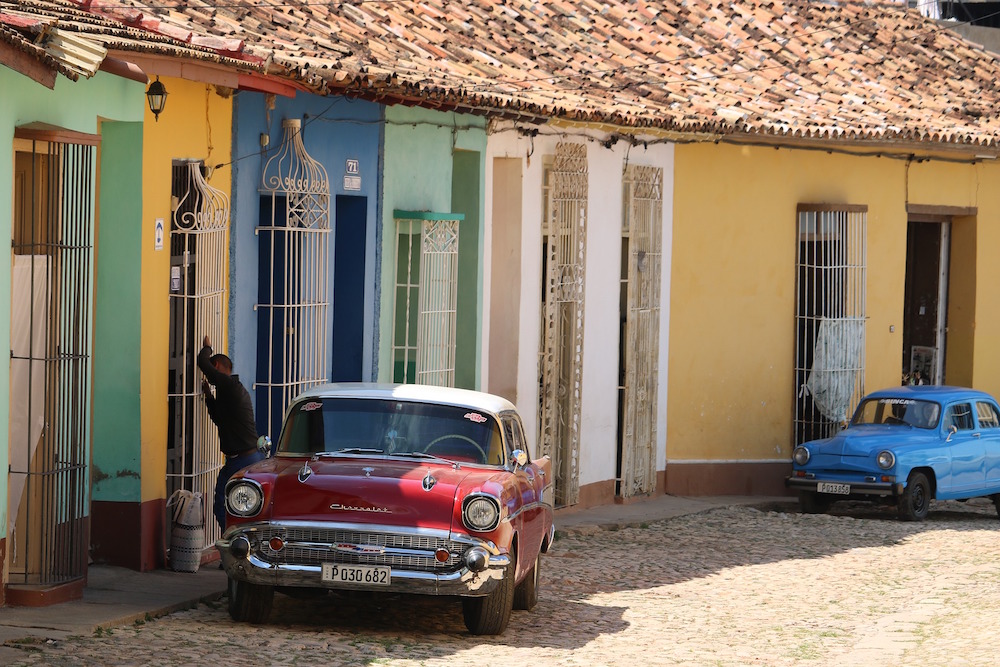
The number of tourists arriving in Cuba has increased exponentially in recent years. In 2017, around 4.2 million tourists visited Cuba. There are several reasons for the popularity of Cuba. Certainly, the visit of the former president of the United States, Barack Obama, the reopening of the embassy of the United States in Cuba and the possibility of direct visits to Cuba by the citizens of the United States, contributed to this. The Americans were quick to take advantage of it. In 2014, the island was visited by more than 91,000 tourists from the United States. By the year 2017, this number increased to more than 619,500. At the end of 2015, during the height season, Cuba lacked accommodation, seats in restaurants and it was normal to see people sleeping on benches on the streets.
US policy has had a positive impact encouraging travellers from other regions to book vacations in Cuba. Some of them also wanted to do it before the opening of America and the flood of American tourists. No one had expected Donald Trump to appear anytime soon, which would chill US relations with Cuba again.
Due to the temporary relaxation of trade restrictions in Cuba, mobile phones, Wi-Fi hotspots, and many other products and services that were prohibited before, appeared on the Island. Cuban culture and its perception as a place that curves the space-time period of the 1950s have been the island’s greatest attractions for decades and the threat that it will disappear has been a great incentive for travellers.
Cuba is a poor country.
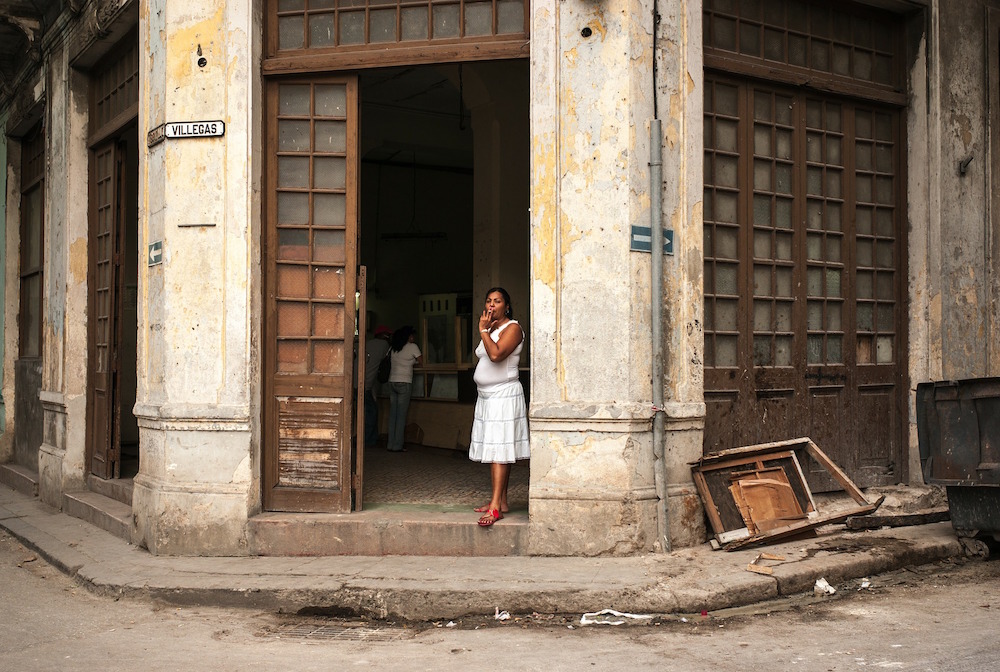
Cuba is far from rich tourist countries. Although in 2016, tourism increased the fragile economy of the country by approximately $ 3 billion dollars, it is a drop in the ocean of the needs of the State that they have been blocking for decades. This is how the embargo in Cuba is determined. And because of this blockade, everything is actually insufficient.
However, the most important thing is that tourism gives Cubans access to a much more valuable exchange (USD), and also supports entrepreneurs who open restaurants, manage taxis or they open their homes for guests. There are some of the few forms of private business allowed in this communist country, where the average state salary is $ 15-80 per month. It is also a State where a taxi driver earns several dozen times more than a doctor or a lawyer.
Tourist peak
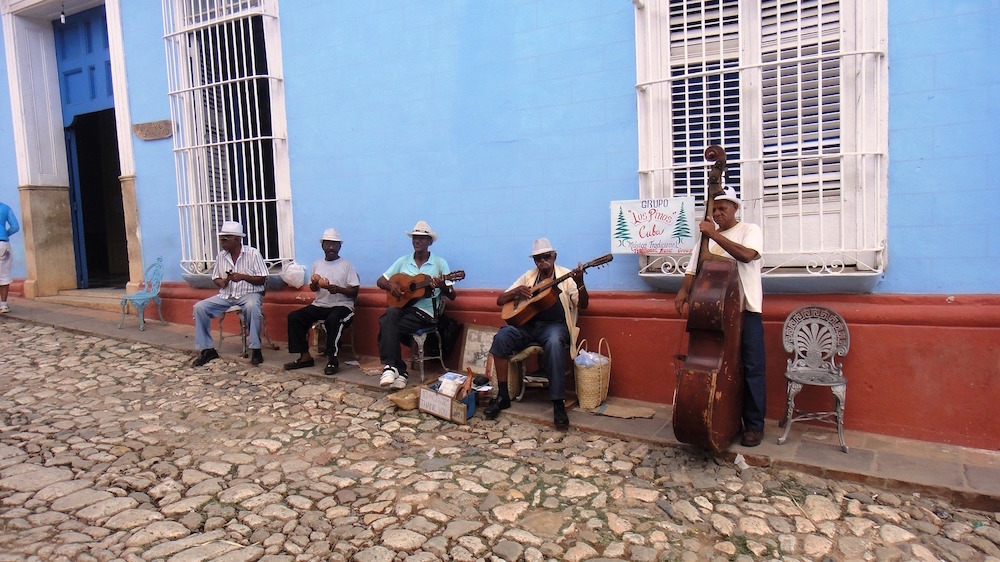
However, Cuba’s infrastructure cannot go on with such rapid change. With each passing month, new Airlines fly to the island. The port is full of huge cruise ships that launch thousands of tourists at the same time to cities and beaches. It still happens that passengers from the United States cannot leave the ship and return to port in the all-inclusive option.
Hotel prices in Havana have increased by over 125 per cent in two years, and only in 2016, approximately 4,000 private rooms were added to the Airbnb site of Cuba, despite the total lack of Internet banking in Cuba. Relevant agencies in the US and Mexico that have repeatedly negotiated the rental of Cubans have solved this problem. Unfortunately, many of them left their business partners after many months of moneyless cooperation, and the track of them was lost.
Of course, this is a problem for travellers, the lack of rooms, crowded restaurants and the lack of public transportation. If we do not have the knowledge and we make reservations in the dark, the high prices of the hotels are even more difficult to resist, due to the often low standards and equipment (the hotel staff are usually state employees and English is not used much).
Cuba’s insufficient self-sufficiency
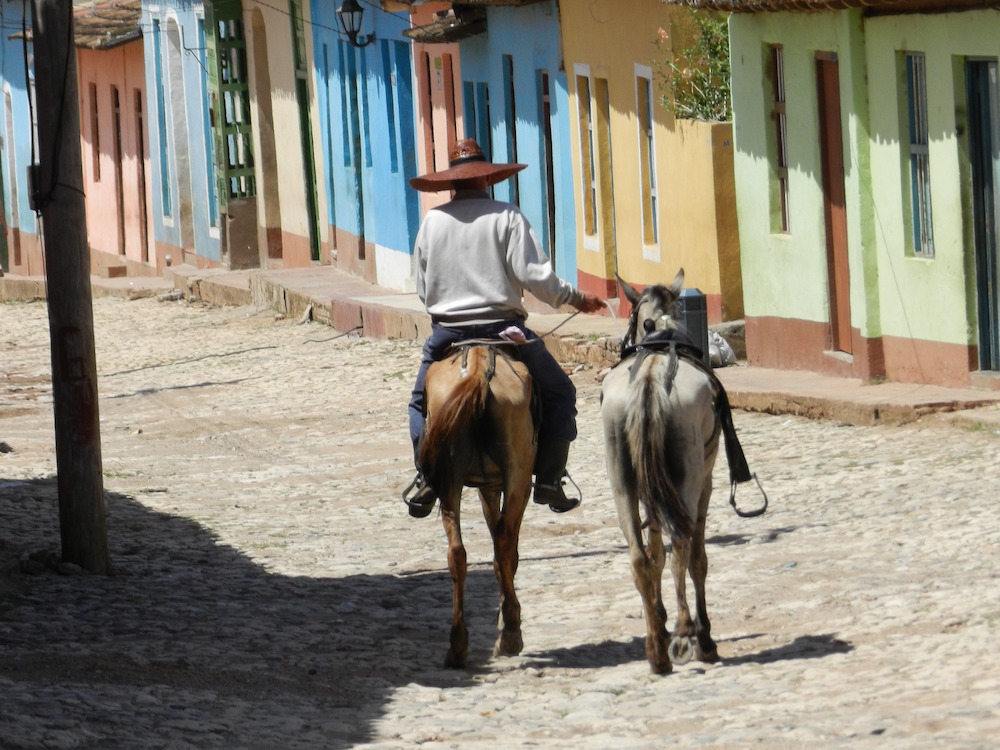
Since the embargo was imposed by the United States, the Island has experienced a food shortage and it had to become self-sufficient in food production. Since the number of visitors increased significantly and food supplies remained the same, a problem arose. And thanks to hotels and restaurants can have higher prices than local shops or residents, small stocks often end up in tourist dishes.
Farmers prefer to sell their products in private markets where prices are not subject to government control rather do it in fully controlled state markets. As a result, the average Cuban, who does not have access to tourism or USD, cannot afford basic products such as onions and tomatoes. Many Cubans have been benefited from the tourism boom, but unfortunately, this has made life more difficult for others. And since the Cuban government does not pay attention to the problem of food shortages and at the same time strives to “double the hotel’s potential for the year 2030,” this is particularly worrying from the perspective of the island’s inhabitants. The situation is not facilitated by the fact that Cuba without tourism would have long ago plunged into total poverty and misery.
What can you do to support Cuba, Cubans and travel responsibly?
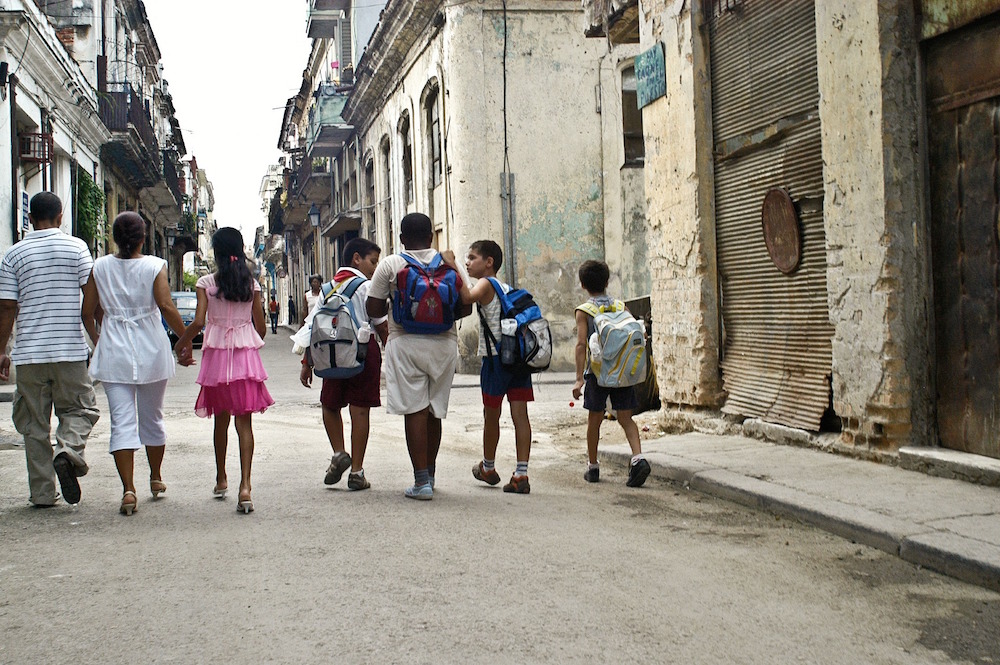
Support the poorest.
Old Havana, Trinidad and Vinales are beautiful of course, but if you are travelling alone, try to spend time in less visited places. Stop in small villages, for example on the way to Maria La Gorda, spend the night at the Bay of Pigs (Playa Girón or Playa Larga), and if you have much more time, you can also go to the east of the island towards Santiago and Baracoa.
Consume Consciously
Keep in mind that Cuba is an island and even the water here is limited. Many Cubans rely on pumps, and in the dry season (that is, the tourist peak) the shortage can be severe. Your Cuban hosts can stay out of the water if you take a long bath. Sometimes such a situation occurs when one tourist spends an hour in the shower and the next one only gets cold water or even nothing. Unfortunately, in these situations, Cubans spread their hands and are powerless. And they cannot be blamed for it.
The situation is similar to the current one. The lack of electricity still occurs, and it is difficult for them to lose their candles on the island. So don’t use random the air conditioner; don’t leave it on when you’re not in the room or when you don’t need it at all. In winter, the nights in Cuba are not so hot.
Yes gifts, then with your head.
It is not mandatory to bring gifts to Cuba. In addition, it must be really prudent, because Cubans are very used to receiving and even claiming. A good gift, or rather a small gift, will always be what is really lacking in Cuba or, something that is very expensive. Chocolates, mamba gum or lollipops for children, pens and stationery, or hygiene items for women are very good ones. The musician will be happy with the guitar strings and the elderly with rheumatic drugs, which is a common complaint due to Cuban humidity.
It is better to leave the gifts in places where the tourists do not stop. Let’s do it in towns that pass by on the road or small towns. A good gift for our hosts will always be some real chocolate, which if it appears, is extremely expensive.
Tips in USD or Euro
Do not practice pointless distribution, but do not regret paying those who won it. If you decide to leave a tip, do it in USD or Euro, not CUP. In Poland, leaving penny tips is also not welcome. Don’t let it seem tactful in Cuba because Cuba is expensive. Cubans, for example, to obtain kitchen utensils, have to buy them in USD and they cost 2 or 3 times more than in the rest of the world.
Abandon mass tourism
The largest travel agencies transport people toward contracted hotels with optional excursions. Unfortunately, this way they do not support directly Cubans or small businesses. Here in Hola Cuba, we make sure that the money goes directly to the inhabitants of the island, to attend responsible tourism and give participants the opportunity to go there, even if only is by choosing restaurants or indicating the right places to buy. We can also support hard-working waiters or cleaners at hotels, but by doing responsible tourism, the hotels are an addition to travel to Cuba, not a necessity itself.
Beware of jineteros (hustlers) – trouble on the streets of Cuba
Even those who don’t know Spanish will quickly learn the word “jinetero,” which literally means “rider,” but refers to the people who scam tourists in Cuba. They are people who ask for gifts on the street: pens, toothpaste, soap, etc., and then they put those items on sale. The Jineteros may also want to show you a bar, restaurant, or friend accommodation and they will receive a commission for the transaction.
Others, smarter and ruthless, may ask you to buy modified milk for their children, which cost about $ 20 in Cuba. You naively buy the milk that will be returned to the store later and the merchant and the jinetero will share the profits. The jineteros are men and women, couples or friends. All the above mentioned makes fraud difficult to recognize. Just politely decline it; you never have to be aggressive. Unfortunately, the situation is hampered by the fact that Cubans are generally sociable and curious about foreign countries that they never had access to, so there are many people who really want to drink with you or go with you on a trip and they do not expect a penny.
Gently with politics
One of the favourite sayings of Cubans is the well-known “walls have ears.” Be sensitive, but also open to politics. Cubans like to talk about politics and about everyday life in a communist country, but the story is not black and white, so don’t try to impose your point of view. You really must know the history and mentality of Cuba to understand the love of Cubans for Fidel Castro and the reluctance to capitalism and the United States.
There is a “big brother” vibe on the streets, and people are reluctant to express their political views wherever they could be heard. Certainly, more often, the conversation will take place in the car or at home, and not on the street.
Take care of cleanness
Cuba is like a wonderful national park and biosphere reserve. Try to visit them, and thus help them to maintain well. If possible, you can hire a local guide, go on a horseback riding tour or a walking trip.
Certainly, sadly, you will notice that Cubans litter the street and are not “environmentally-conscious” according to our Western standards. On the other hand, it is an ecological state by nature. Objects in Cuba are seen as unique. Cars, clothes and shoes are repaired until they literally fall apart. The food is not peppered with chemicals and tastes just like the old days. The vast majority of agriculture is organic, although they do not have the actual certificates. There are still very few cars (which is why transportation is so expensive), and bicycles, horse cars or just horses, still been the most popular means of transportation.
Cuba itself is highly praised and appreciated for having the best ecosystem in this part of the world. It is also the greenest of the Caribbean islands. Take the inspiration of the Cubans; don’t throw away plastic bottles or bags. They will still benefit from them many times over. If you want to throw something away, leave it in the room and let the hosts decide if there will be something else to do with it.
Respect culture and diversity
It may seem to us that Cuban fashion is provocative. For Cubans themselves, Europe is very restrained. Therefore, we should respect different cultures, customs and lifestyles. Do not impose your views and tastes. Cubans are extremely proud of their nation and do not allow any discrimination, both from their group and from foreigners. They do not feel worse or poorer in any way. On the contrary, they have very strong moral thorns, a value system, and they know exactly what they want out of life.
How to understand another reality
Are you going to Cuba? It is a poor socialist country of the third world. If you expect luxury here as much as Saint Tropez and Dubai, you have gone in the wrong direction. Get ready for this trip. Understand that these vacations can learn to verify what is important in life. Be prepared to see poor but happy people and ask yourself how that is possible. If you have an open mind and developed empathy, then Cuba will be like a refreshing shower. However, if you are a demanding and troublesome person, then change direction quickly, even to the neighbouring Dominican Republic. And you better stay home and work on your character.

